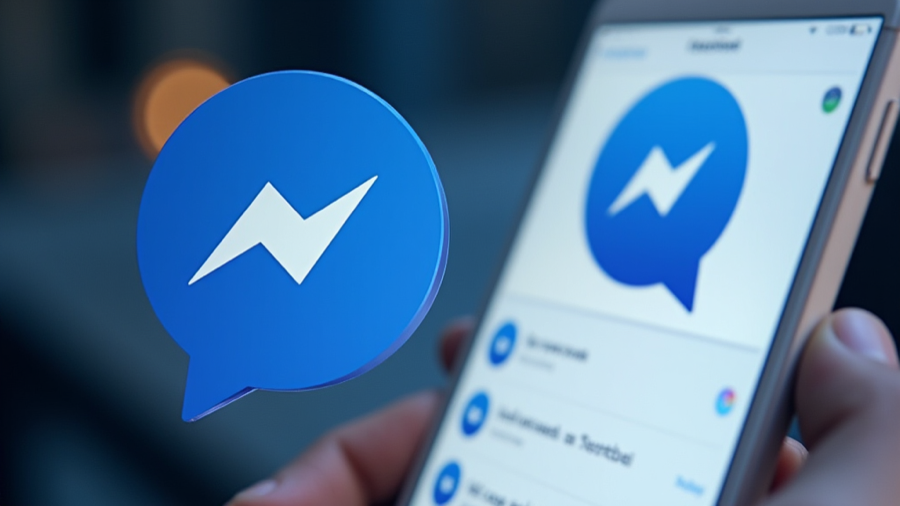Essential Facebook Messenger Rules and Policies Explained

Are you struggling to keep up with Facebook Messenger rules? You’re not alone. Many businesses find it hard to navigate the platform’s policies while trying to connect with customers.
Facebook Messenger rules can be tricky, but they’re crucial for effective communication.
Did you know that Facebook Messenger has a 24-hour rule for business responses? This policy aims to prevent spam and ensure timely interactions. Our guide will break down the essential Facebook Messenger rules and policies.
We’ll show you how to use the platform effectively while staying compliant. Ready to master Messenger? Let’s get started.
Key Takeaways
- Facebook Messenger’s 24-hour rule lets businesses send unlimited messages within a day of user interaction.
- Message tags allow specific types of messages outside the 24-hour window for order updates, account changes, and event reminders.
- Sponsored messages are paid ads that can reach up to 50% of your audience with promotional content outside the 24-hour period.
- The 2024 policy update reduced message tag options and tightened rules on message timing and content types.
- Effective strategies include using one-time notifications, private replies, and human agent handoffs to extend messaging opportunities.
Overview of Facebook Messenger Policy Updates

Facebook has rolled out new rules for its Messenger platform. These changes affect how businesses can interact with users and send messages.
Key changes in the 2024 policy
Facebook Messenger’s 2024 policy update brings key changes to enhance user experience and business communication. You’ll notice stricter rules on message timing and content types. The 24-hour messaging window remains, but businesses now have fewer options for sending messages outside this timeframe.
Message tags have been reduced, limiting the types of content you can send after the initial 24 hours.
These updates aim to cut down on spam and improve the quality of business-user interactions. You must now be more strategic in your messaging, focusing on timely and relevant content.
The new policy also affects chat automations and chatbots, requiring careful compliance to avoid restrictions. As a tech enthusiast, you’ll need to adapt your messaging strategies to align with these changes, ensuring your communication remains effective and policy-compliant.
Impact on businesses and marketers
The new Facebook Messenger policies have shaken up how businesses connect with customers. You now face stricter rules on when and how you can send messages. The 24-hour window limits your ability to reach out after initial contact.
This change forces you to act fast and make every interaction count. You must also be careful about the content you send, as non-compliance can lead to serious consequences.
These updates push you to rethink your messaging strategies. You’ll need to focus on timely, relevant updates that add value for users. The use of sponsored messages allows you to reach up to 50% of your audience with promotional content.
However, you must ensure these messages comply with Facebook’s advertising policies. The next section will guide you through the specifics of the 24-hour messaging window.
Navigating the 24-Hour Messaging Window
Facebook Messenger’s 24-hour rule sets clear limits on business-to-customer chats. You must respond to customer messages within a day or risk losing the chance to engage.
Understanding the 24-hour rule
The 24-hour rule is a key part of Facebook Messenger’s policy. It lets businesses send messages to users for 24 hours after the user interacts with them. This window resets each time a user engages with your business.
You can send unlimited messages during this period, including promotional content.
You need to know what counts as user interaction. Comments on posts or clicking a URL button don’t open the 24-hour window. But when a user sends a message or taps a button in Messenger, the clock starts.
This rule helps keep conversations timely and relevant for users while giving businesses a chance to respond promptly.
Strategies for sending messages outside this window
Facebook Messenger’s 24-hour window limits business-to-customer communication. You can still reach users outside this timeframe with smart strategies.
- Use Message Tags: These allow you to send specific types of messages beyond the 24-hour window. You can use tags for order updates, account changes, or event reminders. Ensure your messages fit the approved tag categories to avoid policy violations.
- Leverage One-Time Notification: This feature lets you send a single message outside the standard window. Users must opt-in for this notification, often for back-in-stock alerts or price drop updates. Use clear, compelling language to encourage opt-ins.
- Send Sponsored Messages: These paid messages reach users outside the 24-hour period. Create targeted ads based on user interests and past interactions. Keep content relevant and valuable to improve engagement rates.
- Implement Marketing Messages: This option requires explicit user opt-in. Offer clear value propositions to encourage subscriptions. Use this channel for promotional content, new product announcements, or exclusive offers.
- Utilize Private Replies: For news publishers, this tool allows responses to user comments on public posts. It opens a new 24-hour window for each reply, extending your messaging opportunity.
- Optimize Human Agent Handoffs: When users interact with a human agent, it resets the 24-hour window. Train your team to engage users effectively, addressing concerns and encouraging further interaction.
- Create Compelling Content: Craft messages that prompt user responses. Ask questions, seek feedback, or offer exclusive deals. User replies restart the 24-hour window, allowing continued engagement.

Compliance Strategies for Using Message Tags and Sponsored Messages
Message tags and sponsored messages offer powerful tools for businesses on Facebook Messenger. You can use these features to reach customers outside the 24-hour window and send targeted promotions.
Learning to use them well helps you stay within Facebook’s rules while growing your business.
Utilising message tags effectively
Facebook Messenger’s message tags offer businesses a powerful tool for customer communication. You can use these tags to send relevant messages without prior permission in specific scenarios.
- Understand the four scenarios: Message tags work for post-purchase updates, account alerts, event reminders, and human agent responses. Know these cases to use tags correctly.
- Set clear expectations: Tell customers what kind of messages they’ll receive. This builds trust and reduces the chance of spam reports.
- Provide opt-out options: Always give users a way to stop getting messages. This respects their choices and helps you avoid being flagged as spam.
- Monitor your Block Percentage: Keep an eye on how many users block your messages. A high rate may mean you’re overusing tags or sending irrelevant content.
- Use personalization: Tailor your messages to each user’s needs and interests. This makes your communication more valuable and less likely to be ignored.
- Time your messages well: Send updates when they’re most useful to the user. For example, send shipping updates soon after a purchase.
- Keep it brief: Write short, clear messages that get to the point quickly. Users are more likely to read and act on concise information.
- Test different approaches: Try various message styles and content types. Use data to see what works best for your audience.
Leveraging sponsored messages for promotional content
Sponsored messages offer a powerful tool for businesses to reach customers outside the standard 24-hour window. You can use these paid messages to send both promotional and non-promotional content to users who have interacted with your page before.
- Target engaged users: Sponsored messages allow you to contact people who have previously messaged your business. This helps you reach an audience already familiar with your brand.
- Create compelling content: Your sponsored message should offer value to the recipient. Include special offers, product updates, or exclusive information to encourage engagement.
- Use personalization: Tailor your messages to individual users based on their past interactions or preferences. This increases the relevance and effectiveness of your promotional content.
- Set clear goals: Define what you want to achieve with your sponsored messages. This could be driving sales, boosting website traffic, or increasing app downloads.
- Optimize timing: Choose the best time to send your sponsored messages based on your audience’s habits and time zones. This can improve open rates and engagement.
- Monitor performance: Track key metrics like open rates, click-through rates, and conversions. Use this data to refine your strategy and improve future campaigns.
- Respect user preferences: Always include an option for users to opt-out of future sponsored messages. This helps maintain a positive relationship with your audience.
- Test different approaches: Experiment with various message formats, content types, and calls-to-action. A/B testing can help you identify what works best for your audience.
Conclusion
Facebook Messenger rules shape how businesses connect with users. You now have the tools to navigate these policies effectively. Use the 24-hour window wisely and explore options like Message Tags and Sponsored Messages.
Stay compliant while engaging your audience meaningfully. Keep up with policy changes to maintain a strong presence on this vital platform.
FAQs
1. What are the key rules for sending messages on Facebook Messenger?
Facebook’s Messenger Platform Policy sets clear guidelines for businesses. The standard messaging window lasts 24 hours after a user starts a conversation. Within this time, companies can send promotional content and personally relevant updates. Outside this window, only specific message types are allowed.
2. How can businesses send messages outside the 24-hour standard messaging window?
Businesses have limited options to send messages beyond the 24-hour window. They can use message tags for important, time-sensitive updates like order confirmations or back-in-stock alerts. News publishers can send one daily update. Sponsored messages are another option, but they must comply with Meta’s advertising policies.
3. What are the rules for subscription messages on Facebook Messenger?
Subscription messages let businesses send regular updates to users who opt in. These messages must be non-promotional and personally relevant. Examples include daily weather forecasts or news updates. Businesses need approval from Meta to use this feature and must follow strict guidelines to maintain this privilege.
4. How does Meta enforce its Messenger Platform Policy?
Meta actively monitors message content and user feedback. Violations of the platform policy may result in restrictions or account suspension. Users can block or mute conversations at any time. Meta encourages businesses to prioritize user experience and respect privacy to maintain positive interactions.
5. Can businesses use Messenger to send promotional content?
Yes, but with limitations. Promotional content can be sent within the 24-hour standard messaging window after a user initiates contact. Outside this window, businesses need user permission or must use sponsored messages. All content must comply with Meta’s advertising policies and relevant laws.
6. How do Instagram messaging API policies differ from Facebook Messenger?
The policies for Instagram’s messaging API closely align with Facebook Messenger’s rules. The 24-hour standard messaging window applies to both platforms. However, some features may vary. Businesses should review the specific guidelines for each platform to ensure compliance when using both for customer communication.